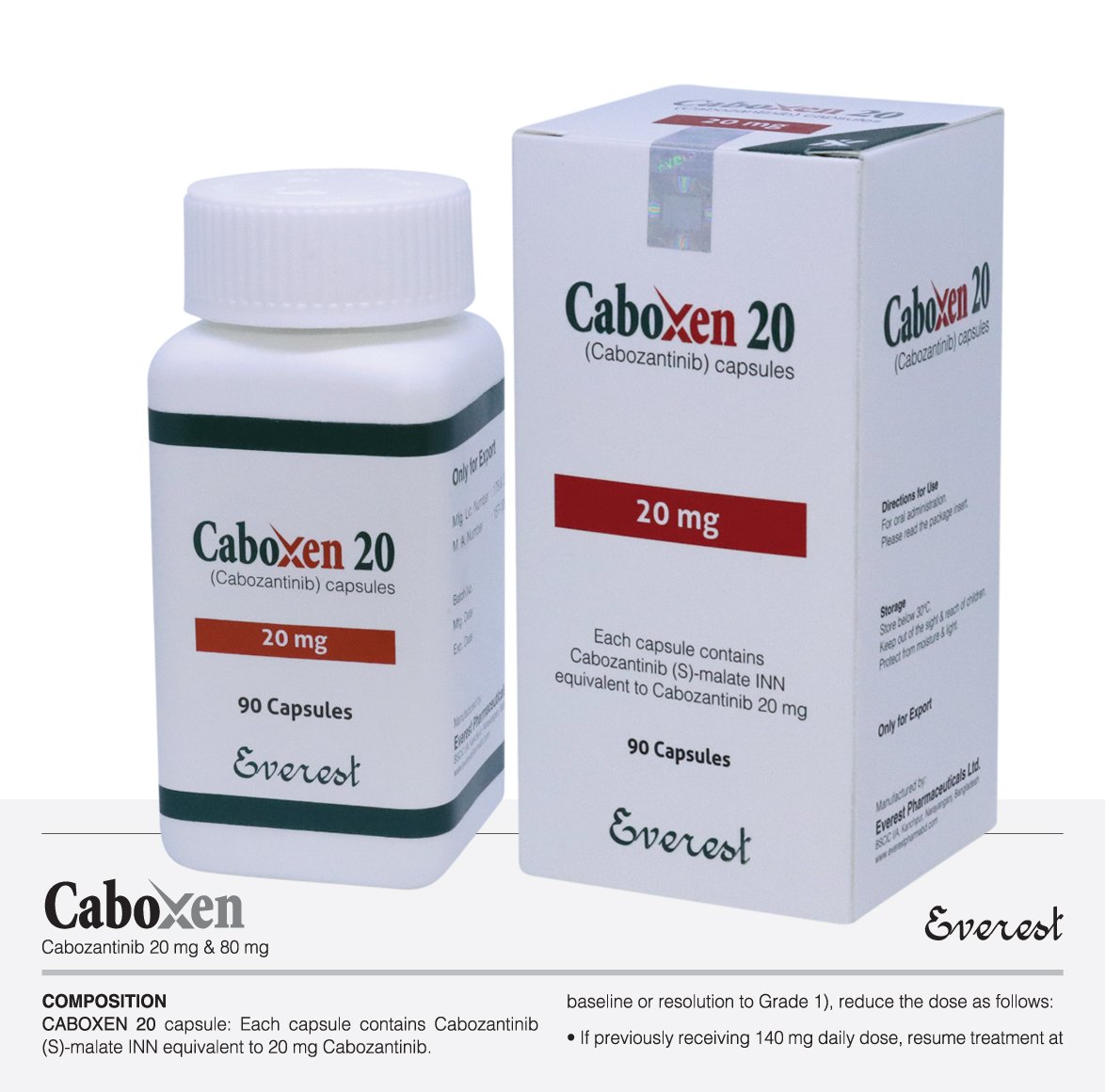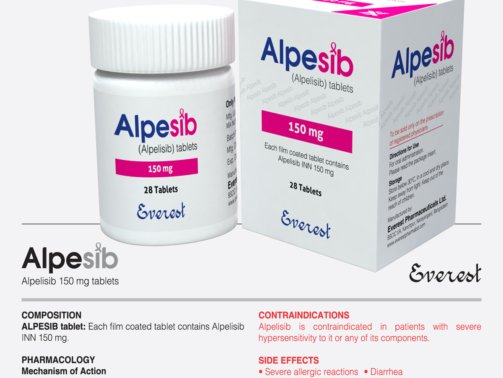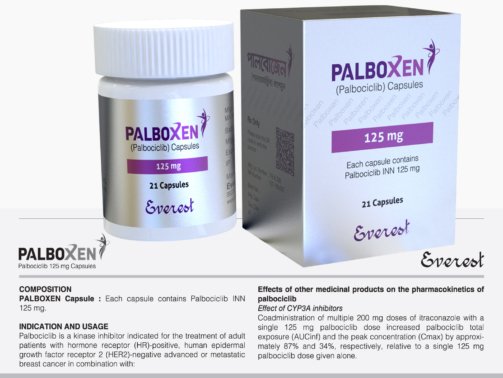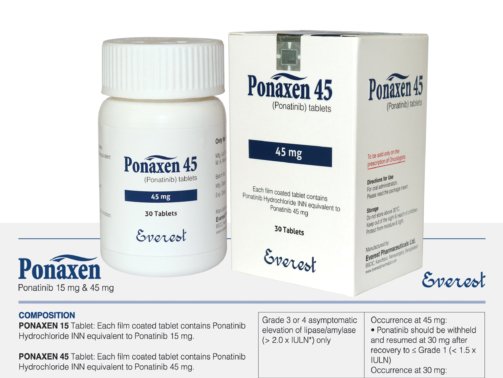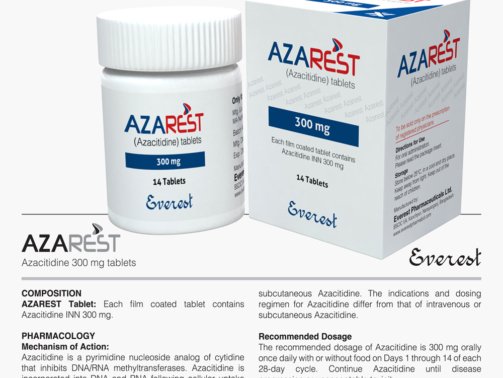Cabozantinib 20 mg (Cometriq)
0.00$
Cabozantinib, known by its International Nonproprietary Name (INN), is a potent oncology inhibitor used to treat various advanced cancers. Its mechanism involves targeting multiple receptor tyrosine kinases crucial for tumor growth and angiogenesis, including MET, VEGFR2, and RET. Cabozantinib is approved for metastatic medullary thyroid cancer, advanced renal cell carcinoma, and hepatocellular carcinoma post-sorafenib therapy. Administered orally, the dosage varies depending on cancer type and patient-specific factors. Patients require close monitoring for adverse effects like hypertension, diarrhea, fatigue, and hand-foot syndrome, with potential dosage adjustments for effective management. Cabozantinib offers promise as a significant therapeutic option for patients with resistant advanced cancers.
- Microcrystalline cellulose
- Lactose monohydrate
- Sodium starch glycolate
- Magnesium stearate
- Gelatin (capsule shell)
- Titanium dioxide
- Yellow iron oxide
- Diarrhea
- Fatigue
- Nausea
- Decreased appetite
- Hypertension
- Palmar-plantar erythrodysesthesia (hand-foot syndrome)
The main indication for the tyrosine kinase inhibitor (TKI) cabotinib, which is sold under the brand name Cometriq, is the treatment of metastatic medullary thyroid carcinoma (MTC). This powerful oral medication disrupts several signaling pathways implicated in angiogenesis, metastasis, and tumor growth. Cometriq at a dosage of 20 mg is a component of a treatment plan intended to maximize both therapeutic efficacy and patient safety.
Mechanism of Action
Several receptor tyrosine kinases (RTKs) implicated in oncogenesis, tumor angiogenesis, and the spread of cancer are targeted by cabotinib. The following are the main targets:
Hepatocyte growth factor receptor, or MET, is linked to the growth and spread of tumor cells.
Vascular endothelial growth factor receptor, or VEGFR, is essential for angiogenesis, which promotes the growth of tumors.
Medullary thyroid cancer is often associated with mutations in RET (rearranged during transfection kinase).
By inhibiting these kinases, Cometriq disrupts critical pathways required for cancer cell survival, thereby reducing tumor progression.
Pharmaceutical Form and Composition
Cabozantinib (as cabozantinib S-malate) is 20 milligrams per Cometriq capsule. The opaque yellow capsules, which are based on gelatin, are meant to be administered orally.
Inactive ingredients in the formulation include:
Indications and Usage
Patients with progressing, metastatic medullary thyroid cancer (MTC) can be treated with Cometriq 20 mg. Patients with advanced or incurable disease, where surgery is not practical, benefit most from the medication.
Under the brand name Cabometyx, cabotezantinib has also been studied for treatment in various malignancies, such as hepatocellular carcinoma (HCC) and renal cell carcinoma (RCC). Cometriq, on the other hand, was created especially to treat MTC.
Dosage and Administration
For MTC, a starting dose of 140 mg of Cometriq per day, taken as a mix of 20 mg and 80 mg capsules, is advised. The capsules must be consumed whole with water, without opening, crushing, or chewing, and taken on an empty stomach (at least one hour before or two hours after a meal).
Depending on adverse effects and patient tolerance, dose modifications can be required. Dosage reductions are used when adverse reactions occur, frequently lowering the dosage to 100 mg daily (one 80 mg and one 20 mg capsule). Discontinuing the 20 mg capsule and keeping the patient on lower dosages could result in further decreases.
Side Effects and Safety Profile
Common side effects of Cometriq include:
Hemorrhage, thromboembolic events, and gastrointestinal perforation are examples of serious adverse effects. Patients should be constantly watched for any indications of severe toxicity, as in severe cases, treatment may need to be stopped or doses may need to be changed.
Conclusion
Cabozantinib 20 mg (Cometriq) is essential for treating metastatic medullary thyroid carcinoma because it blocks important carcinogenic pathways. It is a significant therapeutic option because of its effectiveness in reducing the course of the disease and enhancing patient outcomes. To reduce side effects and maximize patient safety, however, close observation and dose control are necessary.
Order Now At Mdx Pharma bd….
To order from MDX Pharma BD, visit their website at https://mdxpharmabd.com, where you can browse products and place orders online. For inquiries or orders via email, contact emedicarepharma@gmail.com. Alternatively, call (+88) 01929123476. Their address is 29, Abdullahpur, Uttara, Dhaka-1230, Bangladesh.
1. What is the Cometriq indication?
Adult patients with progressing, incurable medullary thyroid cancer that has spread locally or metastasized can be treated with COMETRIQ.
2. What is cabozantinib used for?
Kidney cancer, primary liver cancer, and certain forms of thyroid cancer are all treated with cabotinib. Other malignancies may occasionally be treated with it. Reading the information about this medication in conjunction with our basic information on targeted therapy medications and the type of cancer you have is the best course of action.
3. What is the maximum duration of cabozantinib use?
Tyrosine kinase inhibitors like Cabometyx are used until the malignancy worsens or you are unable to continue taking the medication due to negative side effects or reactions.
4. After chemotherapy, can the kidneys recover?
Certain medications may alter the function of your heart, lungs, liver, or kidneys. Usually only temporary, the alterations end when your treatment is over. However, some medications may result in long-term alterations. These alterations are more likely to be brought on by some immunotherapies, targeted cancer medications, and chemotherapy treatments.
5. What are the signs that your kidneys are healing?
An important measure of kidney health is an increase in urine production. Following AKI or AKF, an increase in urine output may indicate that your kidneys are healing, but too little or no urine output indicates kidney impairment or injury.
| Product Name | Caboxen |
|---|---|
| Generic Name | Cabozantinib INN |
| Formulation | Capsule |
| Available Pack size | 90 Capsules |
| Strengths | 20 mg |

 Cart is empty
Cart is empty 